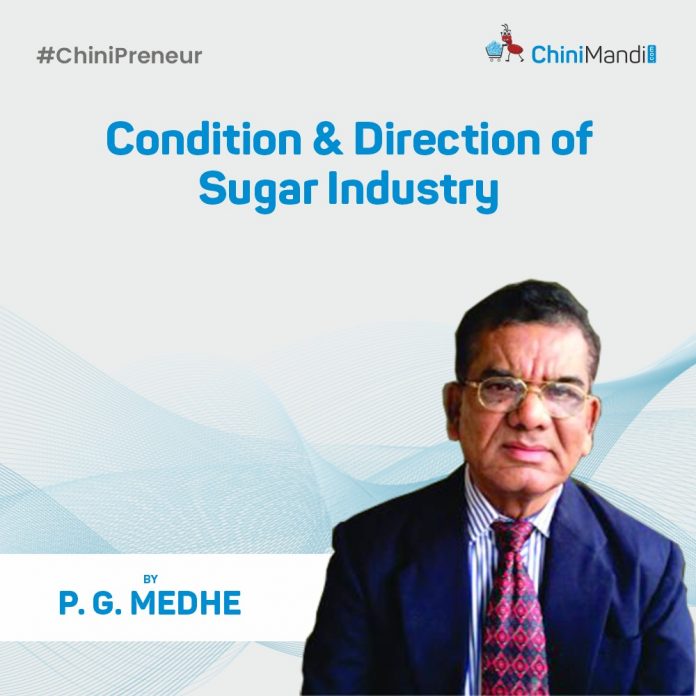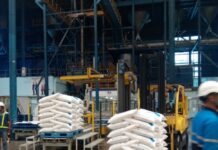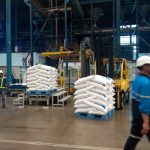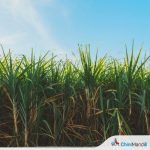The launch of the State Level Sugarcane Registration Portal by the State Sugar Commissionerate marks a significant step forward in streamlining the administrative processes associated with sugarcane cultivation and trade. This innovative digital platform is designed to facilitate the efficient registration of sugarcane farmers, providing them with easier access to essential services and resources. By centralizing data and automating key functions, the portal aims to enhance transparency, reduce administrative burdens, and foster better communication between farmers and the Sugar Commissionerate. As part of the state’s commitment to leveraging technology for agricultural advancement, this portal is poised to play a crucial role in supporting the sustainability and profitability of the sugarcane industry.
During the last crushing 2023-24, all the predicted estimates in respect of Sugarcane availability, expected sugar production etc. were remained falls because of which the sugar factories had to share the consequences. The sugar mills were also financially affected due to Governments changed policies such as ban on ethanol production, ban on sugar export, from the point of view of keeping the sufficient stock of sugar for domestic consumption.
Therefore, in order to understand the exact figures of sugarcane production, the Sugar Commissionerate issued its Circular Bearing No. 240 dt. 16-5-2024 informing all the sugar factories that Sugar Commissionerate has developed “Maha Us Nondani” a State Level Portal in which all the sugar factories have to fill all the information in the prescribed format regarding cane availability and further questioned that the sugar factories not filling the required information will not be issued crushing license for the sugar season 2024-25.
PRESENT SYSTEM OF SUGARCANE REGISTRATION: In Maharashtra, the registration system for sugarcane with sugar factories is crucial for managing the supply chain from farmers to factories.
The tentative overview of the present system is as follows –
- Registration Process–
Farmers register their sugarcane crops with the sugar factories before the start of the crushing season.
This registration includes:
- a) Farmer’s Details: Name, address, contact information, and bank account details for direct payment transfers.
- b) Land Details: Survey number, area under cultivation, and ownership details.
- c) Crop Details: Variety of sugarcane, estimated yield, and expected harvesting time.
- Documentation–
Farmers need to provide several documents for registration:
Land ownership proof (7/12 extract in Maharashtra).
Aadhaar card or other identification.
Bank passbook copy for direct payment transfers.
- Digital Platforms–
Many sugar factories have adopted digital platforms for registration:
- a) Web Portals: Factories provide web portals where farmers can register their crops online, reducing paperwork and increasing efficiency.
- b) Mobile Applications: Some factories have launched mobile apps for easier access and updates.
- Survey and Verification–
Factory representatives conduct field surveys to verify the details provided by farmers:
- a) Physical Verification: Visiting farms to confirm the area under cultivation and crop condition.
- b) GPS and Satellite Imagery: Modern methods like GPS mapping and satellite imagery are sometimes used for precise measurement and monitoring.
- Quota Allocation–Based on the registration data, factories allocate a crushing quota to each farmer as per the harvesting program. This includes:
- a) Crushing Schedule: Timeline for when the farmer’s sugarcane will be harvested and transported to the factory.
- b) Quantity: The amount of sugarcane that will be accepted based on the factory’s capacity and the farmer’s yield estimate.
- Harvesting and Transport Coordination–
The factories coordinate the harvesting and transportation of sugarcane:
- a) Harvesting Teams: Factories often have teams that assist in harvesting the sugarcane.
- b) Transport Arrangements: Ensuring timely transportation to avoid loss of sugar content.
- Payment System–
Payments are made directly to the farmer’s bank account:
- a) Payment Schedule: Based on the factory’s policy and the agreement with farmers, usually within a specific period after delivery.
- b) Fair and Remunerative Price (FRP): The government-set minimum price for sugarcane, which the factories are obligated to pay.
- Government Regulation and Support–
The system is regulated and supported by the government:
a)Maharashtra Sugar Commissionerate: Oversees the registration process, ensures compliance, and addresses disputes.
- b) Subsidies and Incentives: Often times, Government schemes provide subsidies and incentives to promote efficient and fair practices in sugarcane cultivation and registration.
- Challenges and Improvements–
Several challenges exist in the current system:
- a) Delay in Payments: Sometimes, delays in payment to farmers cause financial strain.
b)Registration Errors: Inaccuracies in registration data can lead to disputes.
- c) Transportation Delays: Inefficiencies in transportation can lead to loss of sugar content
DEFECTS IN PRESENT SYSTEM OF CANE REGISTRATION: The present sugarcane registration system in Maharashtra has several defects that impact its efficiency and reliability. These defects include:
- 1.Duplication of Registration–
- a) Multiple Registrations: Farmers often register with multiple sugar factories, leading to duplication and mismanagement.
- b) Lack of Unique Identification: Absence of a unique identification system for farmers and their produce contributes to registration duplication.
2.Inaccurate Estimations –
a)Inconsistent Data Collection: Varied methods of data collection and reporting lead to inconsistencies.
- b) Poor Record Maintenance: Inadequate maintenance and updating of records result in unreliable data.
3.Policy Formation Challenges –
- a) Obstacles at State Level: Inaccurate data hampers effective policy formation and implementation at the state level.
- b) Impact on National Policy: Flawed data at the state level cascades to national policy, affecting overall agricultural strategy.
4.Farmer Complaints –
- a) Delayed Payments: Farmers face delays in payments due to administrative inefficiencies.
- b) Lack of Transparency: Poor transparency in the registration process leads to distrust among cultivators.
5.Technological and Administrative Issues–
- a) Outdated Technology: The use of outdated technology in the registration process leads to inefficiencies.
- b) Administrative Bottlenecks: Bureaucratic hurdles and lack of streamlined processes cause delays and errors.
To address these defects, it is crucial to implement a more robust and integrated system that ensures accurate data collection, unique farmer identification, and efficient administrative processes.
IMPORTANCE OF STATE LEVEL SUGARCANE REGISTRATION PORTAL:
The implementation of a state-level sugarcane registration portal at the State Sugar Commissionerate is of significant importance for various stakeholders involved in the sugarcane industry. Here are some key benefits and reasons why such a portal is crucial:
1) Efficiency and Transparency –
- a) Streamlined Processes: The portal can streamline the registration process for sugarcane farmers, reducing bureaucratic delays and paperwork. This enhances efficiency and reduces the administrative burden on both farmers and officials.
- b) Transparency: By digitizing the registration process, the portal ensures transparency in the allocation of resources and quotas. Farmers can track their applications and see where they stand in the process, reducing chances of corruption and favoritism.
2) Data Management and Accessibility –
- a) Centralized Database: The portal provides a centralized database for all sugarcane-related data. This helps in better management and retrieval of information, aiding in decision-making and policy formulation.
- b) Real-time Data: Authorities can access real-time data on sugarcane production, acreage, and farmer registrations, which is crucial for monitoring and planning purposes.
3) Farmer Empowerment –
- a) Access to Information: Farmers can access vital information related to prices, government schemes, and best practices. This can empower them to make informed decisions and improve their productivity.
- b) Direct Communication: The portal can facilitate direct communication between the State Sugar Commissionerate and farmers, ensuring that important updates and information reach them promptly.
4) Regulatory Compliance –
- a) Ensuring Compliance: The portal can help in ensuring that all registrations comply with the regulatory framework. It can automate checks and validations to ensure that the data submitted is accurate and complete.
- b) Monitoring and Enforcement: Authorities can use the data from the portal to monitor compliance with regulations and enforce rules more effectively.
5) Resource Allocation–
- a) Optimized Allocation: With accurate data on sugarcane production and farmer registrations, the government can optimize the allocation of resources such as subsidies, loans, and technical support.
- b) Targeted Assistance: The portal can help identify the needs of different regions and target assistance to areas that need it the most, ensuring equitable distribution of resources.
6) Market Linkages–
- a) Connecting Farmers and Mills: The portal can facilitate better linkages between farmers and sugar mills, ensuring timely procurement of sugarcane and reducing wastage.
- b) Market Information: Farmers can access market information and trends, helping them to negotiate better prices and plan their production accordingly.
7) Policy Formulation and Research–
- a) Informed Policy Making: Policymakers can use the data from the portal to formulate policies that address the real needs and challenges of the sugarcane industry.
- b) Research and Development: The data can also support research and development efforts aimed at improving sugarcane yields, disease resistance, and overall sustainability of the industry.
8) Dispute Resolution–
- a) Reducing Disputes: By providing clear and accessible information, the portal can help reduce disputes between farmers and mills over issues such as payment delays, quality standards, and quota allocations.
- b) Grievance Redressal: The portal can include a grievance redressal mechanism where farmers can lodge complaints and track their resolution.
In conclusion, a state-level sugarcane registration portal at the State Sugar Commissionerate can play a transformative role in enhancing the efficiency, transparency, and overall effectiveness of the sugarcane industry. It benefits not only the farmers but also the mills, regulatory authorities, and the broader economy by fostering a more organized and responsive agricultural sector.
IMPORTANCE OF STATE LEVEL PORTAL FROM THE NATIONAL POINT IF VIEW: The launching of state-level sugarcane registration portals holds significant importance in the context of national policy formation in the following ways:
1) Data Collection and Analysis –
- a) Accurate Data Gathering: These portals enable precise collection of data regarding sugarcane production, area under cultivation, yield rates, and farmer details.
- b) Real-time Monitoring: Continuous data updates facilitate real-time monitoring of the sugarcane sector.
- c) Informed Decision-Making: Access to detailed and accurate data supports policymakers in making informed decisions, leading to better-targeted policies
2) Policy Formulation and Implementation–
- a) Tailored Policies: State-specific data allows for the formulation of policies that address local issues and requirements, enhancing the effectiveness of national policies.
- b) Resource Allocation: Accurate data helps in the efficient allocation of resources, subsidies, and support to the regions that need them the most.
3) Transparency and Accountability–
- a) Eliminating Redundancies: Digital registration reduces duplicity and fraud, ensuring that benefits reach the intended beneficiaries.
- b) Traceability: Enhanced traceability of production and supply chains increases accountability and reduces malpractices.
4) Farmer Empowerment–
- a) Direct Access: Farmers gain direct access to information regarding government schemes, subsidies, and market prices.
- b) Ease of Registration: Simplified registration processes encourage more farmers to participate in government programs.
5) Market Regulation and Stability–
- a) Supply Chain Management: Better data on production and supply helps in managing the supply chain efficiently, preventing gluts and shortages.
- b) Price Stabilization: By monitoring supply and demand, authorities can implement measures to stabilize prices, protecting both farmers and consumers.
6) Sustainability and Planning–
- a) Long-term Planning: Comprehensive data aids in long-term agricultural planning and forecasting, ensuring sustainability.
- b) Climate Resilience: Data on regional climate patterns and crop performance can help in developing climate-resilient agricultural practices.
7) Integration with National Programs –
- a) Synergy with National Schemes: Integration of state-level data with national databases ensures coherence and synergy with broader agricultural programs and policies.
- b) Performance Evaluation: Facilitates evaluation of state and national policies’ performance, leading to continual improvement.
In summary, state-level sugarcane registration portals are critical for enhancing data accuracy, ensuring effective policy implementation, empowering farmers, maintaining market stability, and fostering sustainable agricultural practices, all of which are essential components for successful national policy formation and execution.
USEFULNESS TO THE STATE & UNION GOVT. FOR POLICY FORMATION: State-level sugarcane registration portals can significantly aid the Union Government in formulating and executing policies related to the ethanol blending program, sugar export targets, subsidies for sugarcane development programs, and other related concerns in the following ways:
1) Ethanol Blending Program –
- a) Production Forecasting: Accurate data on sugarcane production helps in forecasting the availability of raw material for ethanol production.
- b) Resource Allocation: Enables better planning and allocation of resources for ethanol plants, ensuring a steady supply chain.
- c) Target Setting: Helps set realistic targets for ethanol blending by understanding the actual production capacities.
2)Sugar Export Targets–
- a) Supply Management: With precise data on production and yield, the government can assess the surplus available for export after domestic needs are met.
- b) Market Strategy: Formulates strategic decisions on export markets, ensuring competitiveness and optimizing foreign exchange earnings.
- c) Compliance and Standards: Ensures compliance with international quality standards, boosting the credibility of Indian sugar in global markets.
3) Subsidies for Sugarcane Development Programs–
- a) Need Assessment: Identifies the regions and farmers in most need of subsidies, ensuring targeted and efficient disbursement.
- b) Performance Monitoring: Monitors the impact of subsidies on production and yield, allowing for adjustments and improvements in subsidy programs.
- c) Financial Planning: Aids in budgeting and financial planning by providing insights into the actual requirements and expected outcomes.
4) Improved Farmer Support–
- a) Direct Benefits: Ensures that subsidies and benefits directly reach registered farmers, reducing leakage and inefficiencies.
- b) Educational Programs: Helps in organizing training and capacity-building programs based on the needs identified through data analysis.
5) Research and Development–
- a) Data-Driven Research: Facilitates research into new sugarcane varieties, pest control methods, and sustainable farming practices by providing comprehensive data.
- b) Innovation Support: Supports innovation in sugarcane farming and processing techniques by identifying gaps and opportunities.
6) Market Regulation–
- a) Price Stabilization: Helps in implementing measures to stabilize prices by balancing supply and demand based on real-time data.
- b) Policy Adjustments: Allows for timely policy adjustments in response to market fluctuations and production changes.
7) Climate Resilience and Sustainability–
- a) Climate Impact Analysis: Assists in analyzing the impact of climate change on sugarcane production, leading to the development of climate-resilient practices.
- b) Sustainable Practices: Promotes sustainable agricultural practices by identifying and supporting successful methods through data-driven insights.
8) Integration with National Programs–
- a) Unified Data System: Ensures that state-level data is integrated into a national database, providing a comprehensive view of the agricultural landscape.
- b) Coherent Policy Making: Ensures that state and national policies are aligned, enhancing the effectiveness of agricultural programs.
In essence, state-level sugarcane registration portals provide a robust foundation for the Union Government to formulate well-informed, efficient, and targeted policies. These portals enhance data accuracy, transparency, and accountability, leading to better management and implementation of various programs related to the sugarcane sector.
In conclusion, the launch of a State Level Sugarcane Registration Portal at the Sugar Commissionerate represents a significant step towards modernizing and streamlining the sugarcane industry. This initiative promises to enhance efficiency, transparency, and accessibility for all stakeholders, from farmers to mill operators. By leveraging digital tools, the portal will address longstanding challenges related to registration, data management, and resource allocation, ultimately fostering a more equitable and productive agricultural sector. As the industry faces evolving demands and climatic uncertainties, such a proactive measure is not just beneficial but essential for ensuring the sustainable growth and resilience of the sugarcane economy as well as useful for formulation of long term consistent Government policies.
P.G. Medhe is the former Managing Director of Shri Chhatrapati Rajaram Sahakari Sakhar Karkhana Ltd and sugar industry analyst. He can be contacted at +91 9822329898.












